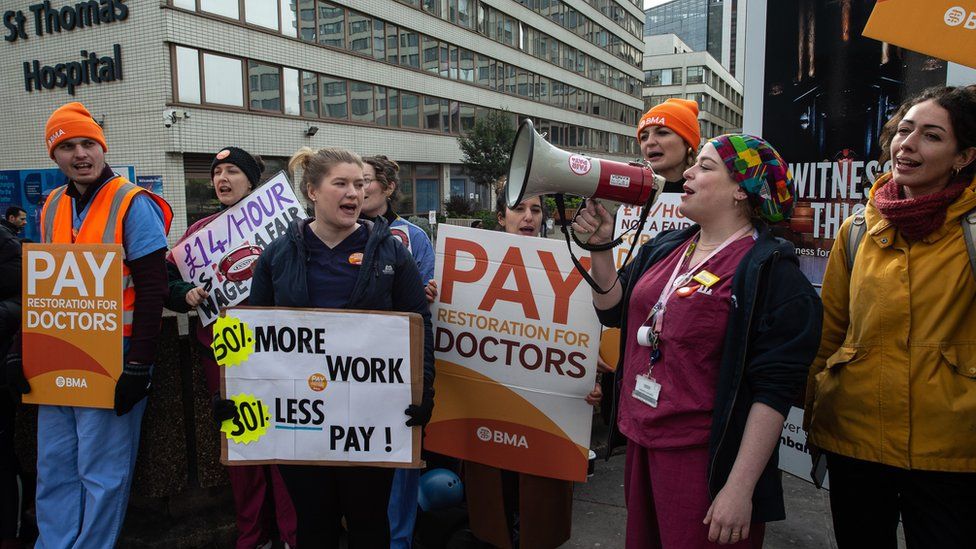Hospital doctors in England are embarking on the longest consecutive strike in the seven-decade history of Britain’s National Health Service (NHS) starting today. Junior doctors, those below consultant level, are staging a six-day walkout as a significant escalation in their prolonged pay dispute with the UK government.
This industrial action comes at a critical time for the state-funded NHS, facing heightened pressure from winter respiratory illnesses. It follows closely on the heels of a three-day strike held just before Christmas. The NHS anticipates that this latest walkout, potentially involving up to half of the medical workforce on picket lines, will have a “significant impact on almost all routine care.”
Stephen Powis, the national medical director of the NHS, expressed concerns, stating, “This January could be one of the most difficult starts to the year the NHS has ever faced.”
The strike is set to commence at 7:00 am (0700 GMT) and is scheduled to end at the same time on Tuesday, January 9. The British Medical Association announced the walkout in December following a breakdown in talks with the government.
While the union revealed that junior doctors were offered a 3% rise on top of the average 8.8% increase they received earlier in the year, it rejected the offer citing uneven distribution across different doctor grades, leading to pay cuts for many doctors. This marks at least the seventh strike by junior doctors since March.
Prime Minister Rishi Sunak and hospital leaders have criticized the action. Health policy is a devolved matter for the administrations in Scotland, Wales, and Northern Ireland, with the UK government overseeing England. Junior doctors in Wales are planning a 72-hour walkout from January 15, while those in Northern Ireland have voted for potential strike action. Scottish counterparts have reached an agreement with the government in Edinburgh.
With the NHS typically experiencing a rise in hospital admissions two weeks after Christmas, compounded by backlogs in waiting times due to Covid-related delays and years of underfunding, the service is already under considerable strain.


